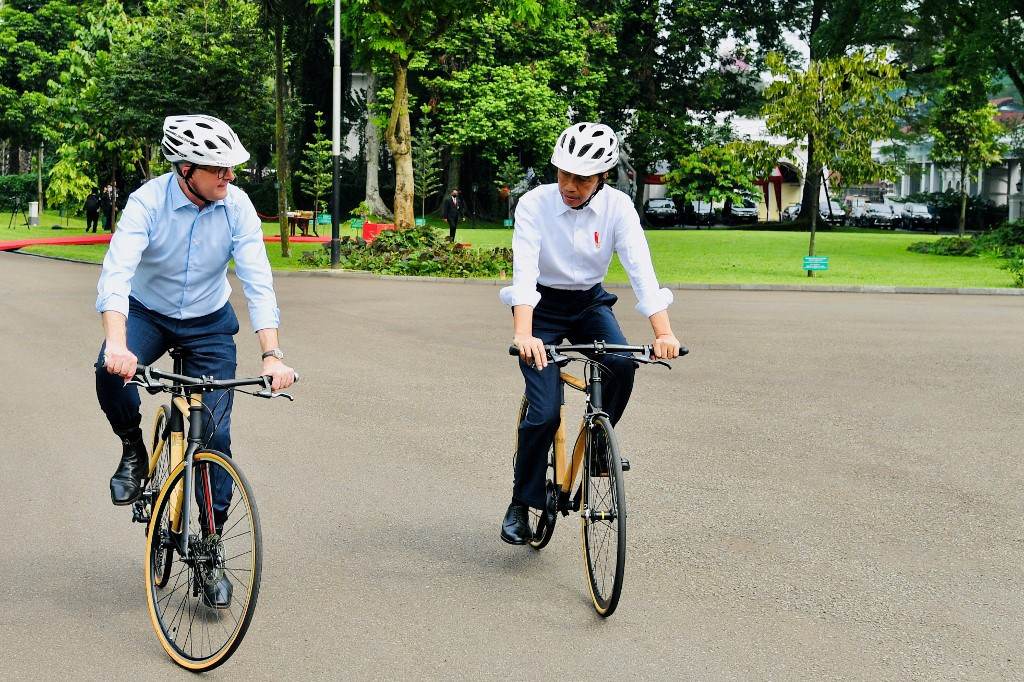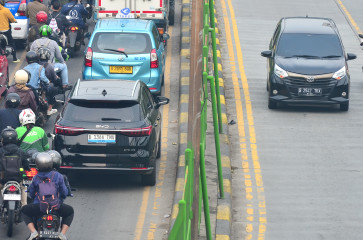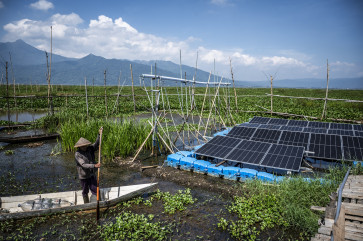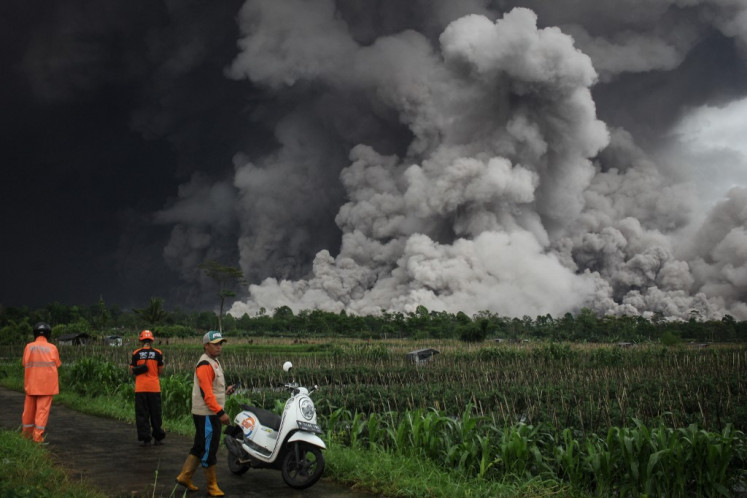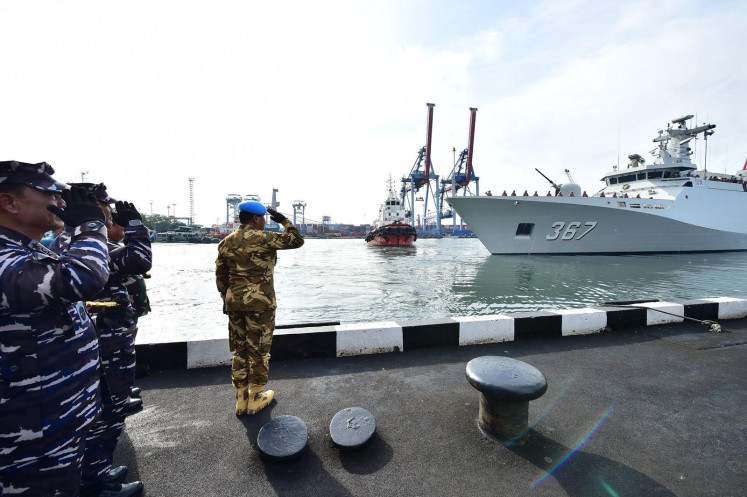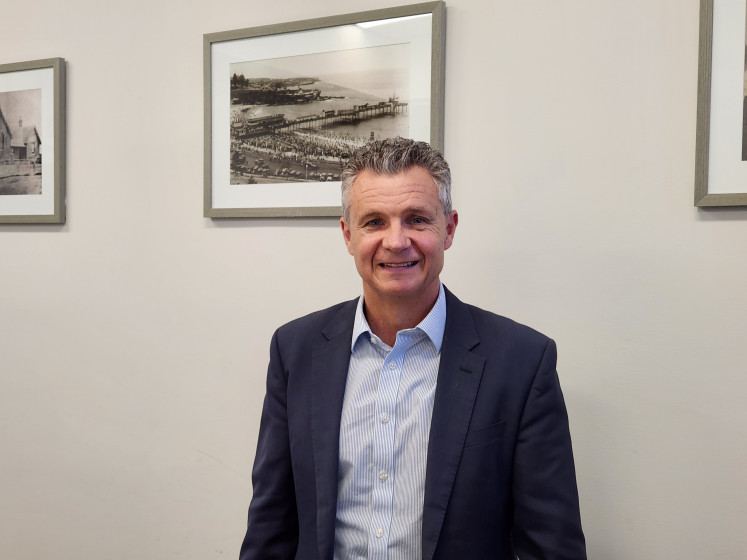Popular Reads
Top Results
Can't find what you're looking for?
View all search resultsPopular Reads
Top Results
Can't find what you're looking for?
View all search resultsAlbanese heralds ‘strategic reset’ of Australia-Indonesia ties: CSIS
Soon after his inauguration as premier in late May, the Labor Party leader went to Tokyo for a previously scheduled summit with Japanese, Indian and United States leaders – the constituents of the Quad alliance. However, the first stop on his maiden trip in office was to Indonesia, where he and members of his cabinet met with President Joko “Jokowi” Widodo last week.
Change text size
Gift Premium Articles
to Anyone
U
nder prime minister Anthony Albanese’s leadership, Australia is poised to shift its priorities toward relations with close neighbors such as Indonesia, some analysts say, in a possible departure from the previous government’s focus on fellow anglophone states.
Soon after his inauguration as premier in late May, the Labor Party leader went to Tokyo for a previously scheduled summit with Japanese, Indian and United States leaders – the constituents of the Quad alliance. However, the first stop on his maiden trip in office was to Indonesia, where he and members of his cabinet met with President Joko “Jokowi” Widodo last week.
Lina Alexandra, a senior researcher at the Centre for Strategic and International Studies (CSIS), a Jakarta-based think tank, said that while it was traditional for a new Australian premier to visit Indonesia early on, Albanese’s trip had indicated that his administration placed Indonesia prominently in its foreign policy.
She compared Albanese to his predecessor, Scott Morrison, who prioritized Australia’s relations with the United States and the United Kingdom, strengthening perceptions of Australia’s close alignment with those states.
She said the Albanese administration had shown commitment to Australia’s bilateral relationship with Indonesia, such as by increasing the number of Indonesians who would be admitted to Australia on working holiday visas to 5,000 annually, through its work related to the New Colombo Plan student exchange program and through the planned reinvigoration of Indonesian language studies at Australian schools.
Meanwhile, for Australia’s broader relations with ASEAN, Albanese pledged A$470 million (US$327.40 million) over four years for development in the region.
“This is a signal that there will be a strategic reset in which Australia will look at Indonesia and countries in Southeast Asia more seriously,” Lina said during a discussion on Thursday.
Read also: Jokowi, Albanese herald ‘heartfelt’ start to deepening ties
She added that Australian Foreign Minister Penny Wong might act as a personal emissary for Australia’s relations with its closest neighbors, as being a Malaysian-born Australian could assist in her understanding of, and communication with, Southeast Asia.
While in Jakarta last week, Wong said in a taped statement that Australia’s future was tied to that of the region.
“It’s a region I know. It’s the region I am from. I grew up in Kota Kinabalu before moving to Australia. I am one of so many Australians who have deep connections to the region. It’s more than geography that ties us together,” she said.
Meanwhile, CSIS executive director Yose Rizal Damuri said that while Australia and Indonesia’s relations tended to fluctuate politically – with both countries periodically summoning each other’s ambassadors when disagreements arose – economic relations between the countries were more stable.
“However, Australia and Indonesia’s economic relations have yet to reach their maximum potential, which is actually quite high,” Yose said.
He said the geographical proximity of the two countries could help them complement each other’s economies but that, in practice, Indonesia was only Australia’s 11th largest export market, while Australia was only the 12th largest investor in Indonesia, mainly in the mining and services sectors.
The two states have been trying to address the issue through a comprehensive strategic partnership declared in 2018; the Indonesia-Australia Comprehensive Economic Partnership Agreement (IA-CEPA), which came into force in 2020; and an Australian government blueprint for trade and investment with Indonesia that was announced in 2021.
Read also: RI to boost export to Australia as IA-CEPA enters into force
“However, the past problem still persists, which is that Australia prefers to trade with the West, such as European countries, the US and especially the UK,” Yose said, adding that Indonesian exporters tended to struggle to meet Australia’s commodity import standards.
Yose expressed hope that the Albanese administration would reorient its economic activity with Asia and its closest neighbors as well.
Meanwhile, international relations researcher Gilang Kumbara of CSIS said that in terms of strategic and military cooperation, Australia-Indonesia relations were well established. This, he said, would remain the case under Albanese, although Australia would now have to account for AUKUS – a security pact between Australia, the US and the UK agreed to in late 2021 – as well as the Quad.
The Albanese administration, he added, might take a somewhat different tack with regard to Australia's security diplomacy, seeing as the country had recently agreed to compensate France for pulling out of a submarine deal in September 2021.
Read also: Labor win in Australia sparks Indonesian hope for fresh relationship
Lina of CSIS predicted that Australia would be more outspoken on the issue of Papua under Albanese. She said strong statements would actually be a healthy sign that Canberra wanted Jakarta to handle the issue better so that it would no longer be the “Achilles heel” of Indonesia’s ties with Australia or other countries.
“With sustained communications, critiques can be constructive, as long as they are not offhand, emotionally provoking comments but actual efforts on how Australia can help,” she said.
Foreign Ministry director general for Asia, the Pacific and Africa Abdul Kadir Jailani said the two countries’ relationship would be dynamic regardless of who was governing Australia.
“What is certain is that with the established [Australian] Labor government, we hope that the relationship between our two countries can strengthen even further,” he said.

